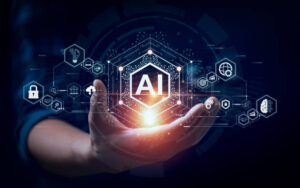
AI (Artificial Intelligence) refers to the simulation of human intelligence in machines that are programmed to think, learn, and make decisions. In simple terms, AI allows computers to perform tasks that typically require human intelligence.
Advantage Of AI
1. Automation of Repetitive Tasks
AI can automate routine or repetitive tasks (like data entry, sorting emails, or manufacturing processes), saving time and reducing human error.
Example: AI-powered robots in factories or chatbots handling customer service.
2. Increased Efficiency and Productivity
AI systems can work 24/7 without fatigue, leading to higher productivity and faster outcomes.
Example: AI tools that analyze massive data sets in seconds, which would take humans hours or days.
3. Improved Decision-Making
AI can analyze data, identify patterns, and make predictions, helping humans make more informed decisions.
Example: AI used in finance to forecast stock trends or in healthcare to diagnose diseases early.
4. Personalization
AI can tailor services, content, or products to individual users.
Example: Netflix recommending shows or Amazon suggesting products based on your habits.
5. Enhanced Safety
AI can be used in hazardous environments, reducing risks to human life.
Example: AI robots used in space exploration, deep-sea missions, or bomb disposal.
6. Accessibility Support
AI-powered tools help people with disabilities by enabling voice control, visual recognition, or real-time speech-to-text.
Example: Screen readers for the visually impaired or AI assistants for the hearing impaired.
7. Continuous Improvement
AI systems can learn from data and experiences to get better over time without needing complete reprogramming.
Example: Self-driving cars that improve their navigation by learning from every trip.
Disadvantage Of AI
1.Job Displacement
- Automation of repetitive tasks can lead to unemployment in sectors like manufacturing, customer service, and data entry.
- Even high-skill jobs (e.g., legal, medical, finance) are being affected as AI tools become more advanced.
2. Bias and Discrimination
- AI systems can reflect or amplify existing societal biases present in training data, leading to unfair outcomes in hiring, lending, law enforcement, etc.
3. Lack of Transparency (Black Box Problem)
- Many AI models, especially deep learning ones, are hard to interpret, making it difficult to understand how decisions are made, which can be dangerous in sensitive applications (e.g., healthcare, justice).
4. Security Risks
- AI can be used for malicious purposes, such as:
- Deepfakes
- Autonomous weapons
- AI-driven cyberattacks
5. Dependence and Reduced Human Skills
- Over-reliance on AI can cause people to lose essential skills (e.g., navigation, critical thinking, writing).
- May reduce human judgment and responsibility.
6. Privacy Concerns
- AI used in surveillance, facial recognition, and data analysis can erode personal privacy and enable mass surveillance.
7. Cost and Resource Use
- Developing and maintaining AI systems is expensive and resource-intensive, especially with large language models and deep learning systems.
8. Unemployment and Economic Inequality
- Wealth may concentrate in the hands of those who control AI technology, leading to greater income inequality and social unrest.
9. Ethical Dilemmas
- AI raises difficult questions about:
- Responsibility for autonomous systems’ actions
- AI use in warfare
- Consent in AI-generated content
